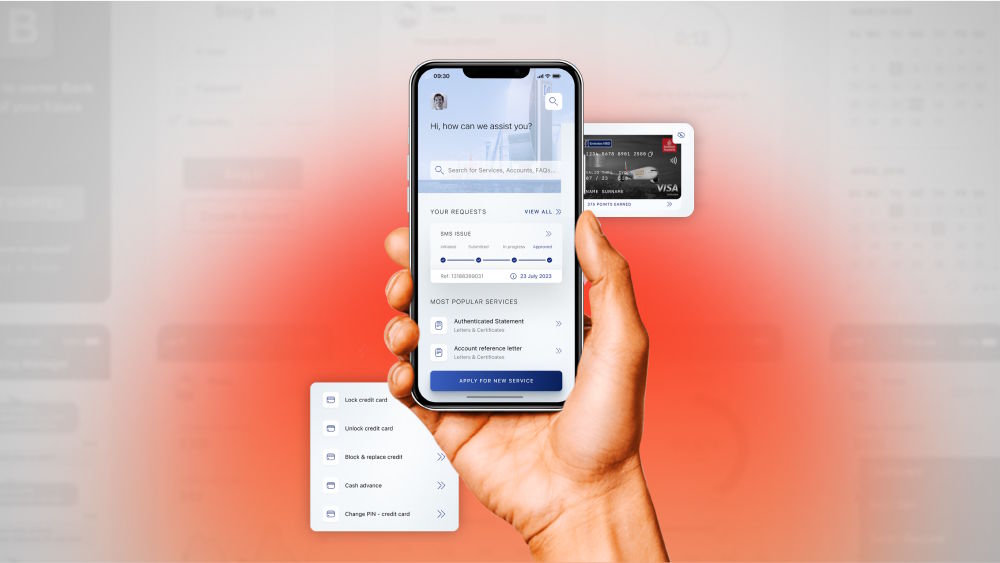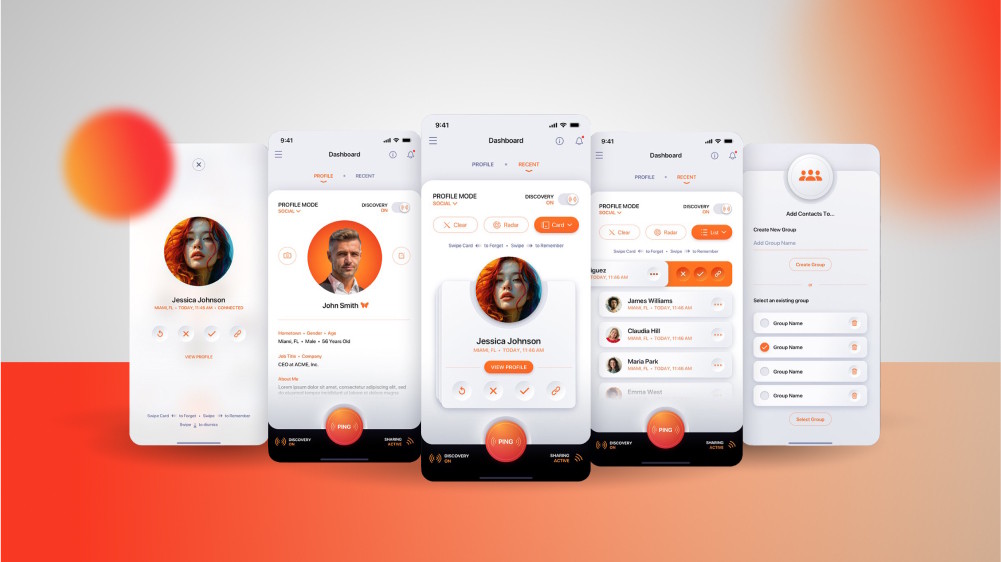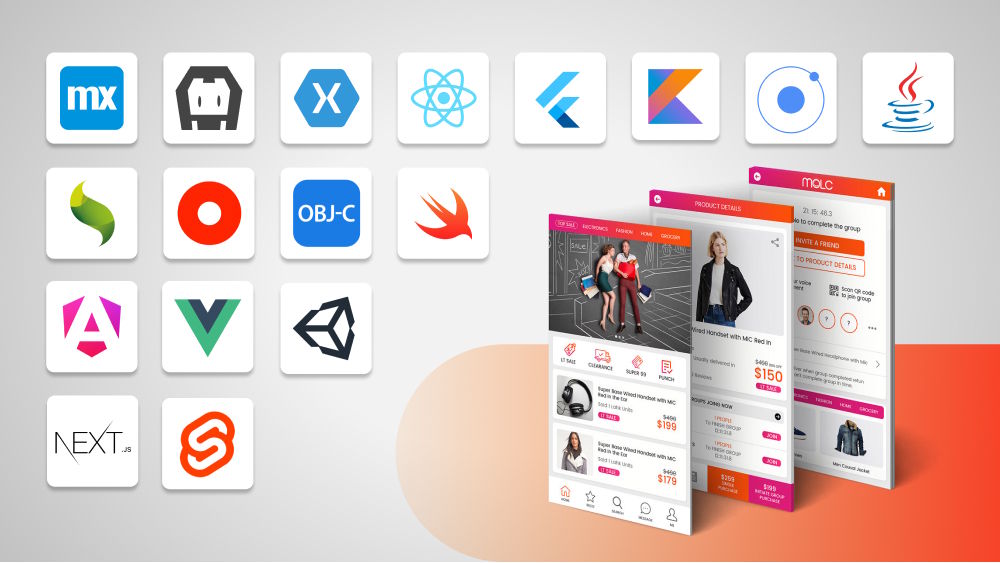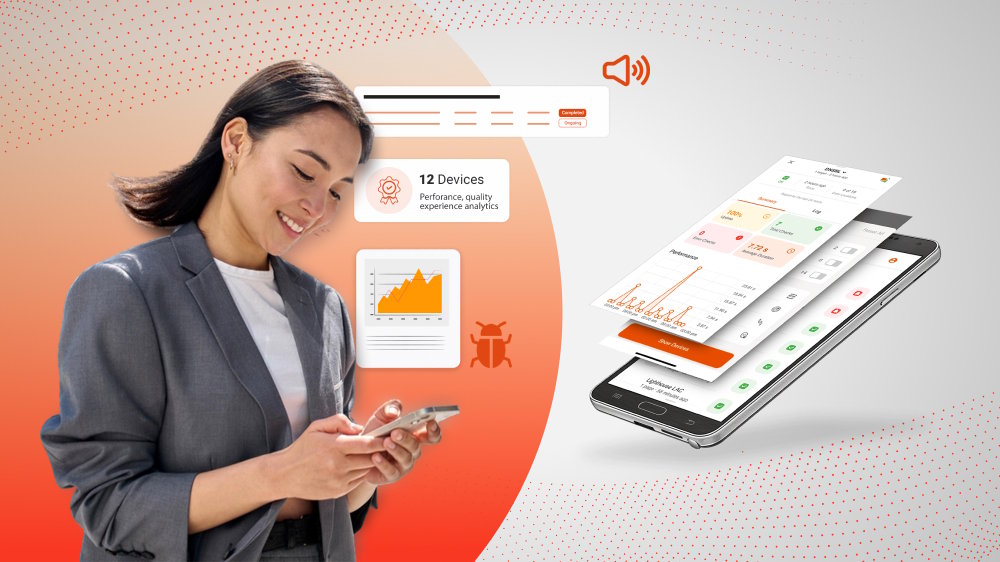
Mobile Apps for Business: What Are the Real Benefits?
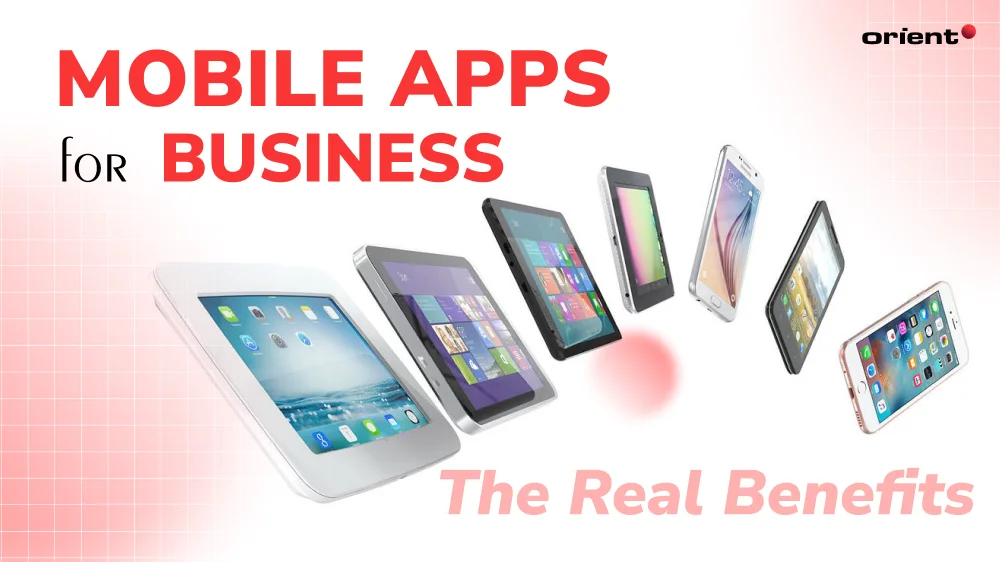
Content Map
More chaptersMobile apps have become an integral part of our everyday life. From social networking to shopping, gaming to banking, we rely on apps for almost everything. But have you ever considered how these apps are revolutionizing the business world?
Mobile apps are reshaping how businesses operate, engage with their customers, and drive growth. For instance, businesses have seen their average annual online spend per customer increase after using a mobile app for a year. Moreover, compared to mobile websites, apps have been shown to have 130% higher conversion rates and 140% higher average order values.
From retail giants to small businesses, savvy companies across industries are now leveraging customized apps to stand out from competitors. Rather than a mere online brochure, properly designed apps strengthen customer loyalty through seamless purchasing, personalized experiences, and around-the-clock support. The right features foster higher engagement, repeat visits, and impulse purchases on the go.
In this article, we’ll explore how mobile apps for business deliver real, measurable benefits for both B2B and B2C ventures. Discover proven ways to boost sales, gain valuable user data, and save big on marketing costs. We’ll also outline essential development considerations. Ready to take your business mobile? Read on for the true impact of introducing apps!
Why Do Businesses Need to Adapt Mobile Apps?
The use of mobile devices has developed significantly in the current digital era. Humans are increasingly relying on their mobile phones for a variety of tasks, from shopping and banking to communication and entertainment. This shift towards mobile usage is not barely a trend but a powerful shift in consumer behavior that businesses cannot afford to ignore.
The prevalence of mobile usage is staggering. As of 2023, there were over 6.3 billion smartphone users worldwide. These users spend an average of 90% of their mobile time on apps. This means that organizations without a mobile app are missing out on a significant opportunity to reach and engage with their target audience.
The shift towards mobile-first strategies is not just about staying relevant. It’s about meeting consumers where they are. Today’s consumers are on their mobile devices, and they expect businesses to be there, too. They want the convenience of accessing services, making purchases, and interacting with businesses right from their mobile device.
Moreover, app users tend to be more engaged and loyal compared to web users. Mobile apps offer a personalized user experience, which can then result in higher customer satisfaction and retention. They also provide businesses with valuable data about user behavior, which can be used to make informed business decisions.
Key Benefits of Mobile Apps for Businesses
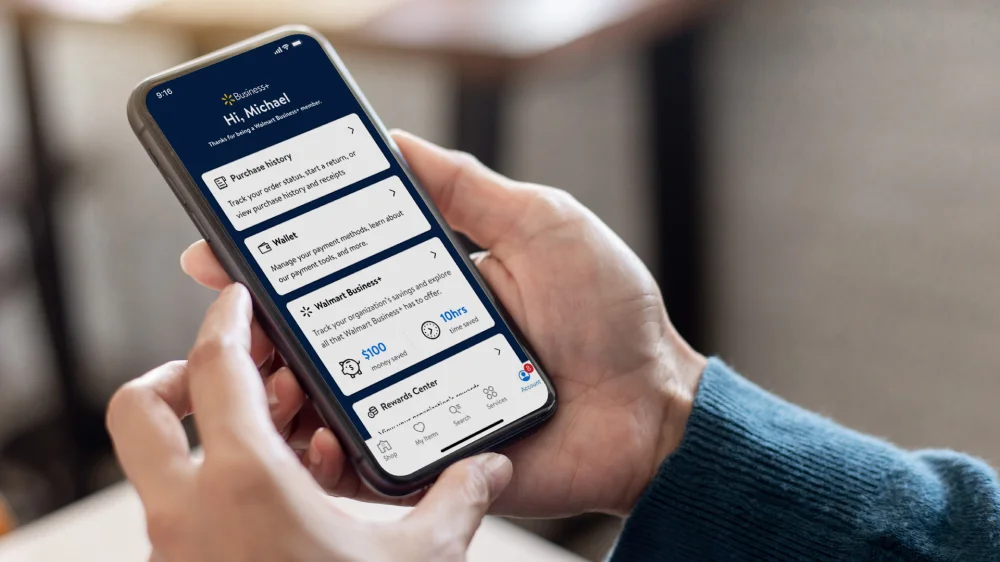
As we discussed, mobile apps offer a dedicated space to connect with your customers and unlock a world of possibilities beyond the limitations of a mobile browser. Now, let’s delve into the real benefits a mobile app can bring to your business.
Improved Customer Engagement
Mobile apps provide a powerful platform for fostering deeper connections with your customers. Push notifications allow users to deliver targeted messages directly to their devices, keeping them informed about promotions, new products, or upcoming events. In-app features like chatbots and loyalty programs create interactive experiences that encourage repeat visits and engagement.
For instance, a communications app can facilitate instant messaging between the business and the app user, making it simpler for customers to ask questions, make requests, or provide feedback. This can result in enhanced Customer Relationship Management (CRM), as businesses can better understand and meet the needs of their customers.
Additionally, mobile apps can facilitate two-way communication through features like in-app messaging or customer review sections. This enables you to gather valuable feedback, address customer concerns promptly, and build stronger relationships.
Increased Accessibility
In today’s fast-paced world, convenience is king. A well-designed mobile app removes the barriers of location and time, making your business more accessible to customers than ever before. Imagine a clothing store with a mobile app that enables users to browse the latest collections, check product availability at nearby stores, or even make online purchases directly from their phones. This 24/7 accessibility translates to increased customer satisfaction and potential sales opportunities.
Mobile apps also empower customers to connect with your business on their own terms. They can access essential information like store hours and directions, view product tutorials, or schedule appointments – all at their fingertips. This level of convenience fosters customer loyalty and encourages repeat business.
Enhanced Operational Efficiency
Mobile apps aren’t just about customer-facing benefits; they can also revolutionize your internal operations. Imagine streamlining communication within your team through a dedicated app that facilitates task management, project updates, and real-time collaboration. Mobile apps can also automate mundane tasks like data collection and reporting, freeing up valuable time and resources for your employees.
Furthermore, mobile apps can improve collaboration and productivity within a business. For example, a team messaging and communication app can allow employees to communicate, share files, and create to-do lists in real-time. This can make it easier for sales teams to coordinate their efforts and achieve their goals.
Additionally, in-app features like inventory management systems or appointment scheduling tools can significantly improve operational efficiency. By leveraging the power of mobile apps, enterprises can streamline workflows, make data-driven decisions, and ultimately save time and money.
Data Collection and Analysis
One of the most significant advantages of mobile apps for businesses is the ability to collect and analyze customer data. Mobile apps can track user engagement, monitor purchase trends, and gather demographic information. This data can provide meaningful insights into customer behavior and preferences.
For instance, an e-commerce app can track the products that users view, the ones they add to their cart, and the ones they actually purchase. This data can help the business understand which products are popular among its customers and which ones are not. It can also identify trends, such as when users are most likely to make a purchase or which marketing messages are most effective.
Moreover, mobile apps can leverage advanced analytics tools to derive practical insights from the collected data. These insights can inform business strategies and decisions, leading to enhanced customer satisfaction and raised revenue.
Must-Have Mobile Apps for Businesses
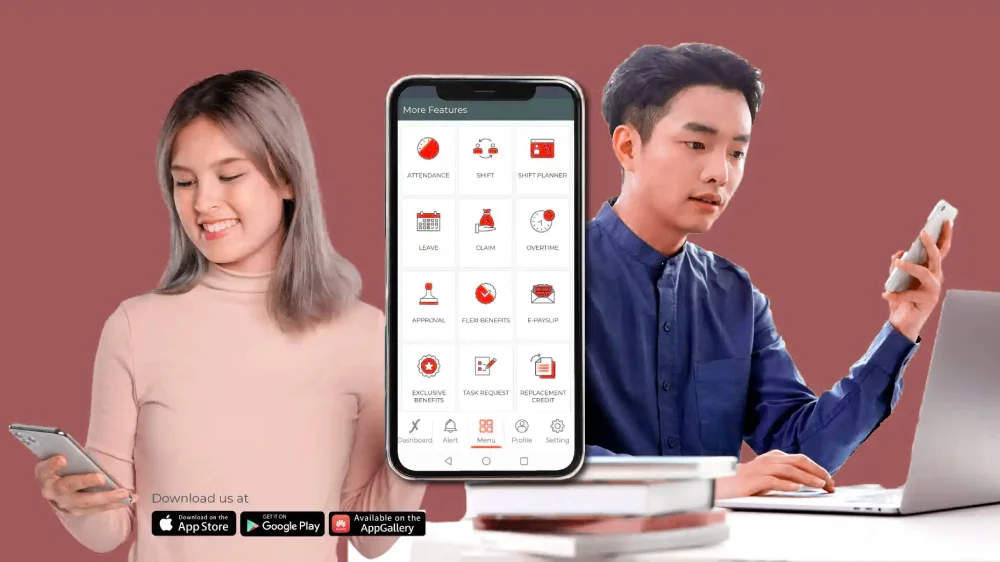
The landscape of mobile business apps is vast, catering to a wide range of needs. However, some applications have become ubiquitous, offering functionalities essential for streamlined operations. Here’s a look at four powerhouse mobile apps that businesses commonly leverage:
Project Management and Communication
Slack is a powerful communication tool that allows businesses to streamline their internal communication. It offers features like direct messaging, group chats, and file sharing. Businesses can create different channels for different projects or departments, making it easier to manage communication. Slack also integrates with other tools like Google Drive and Dropbox, further enhancing its functionality. While there is a free version available, businesses can opt for paid plans for additional features.
Managing multiple social media channels is much more a daunting task for businesses. That’s where Hootsuite comes in. This app allows businesses to manage and schedule their social media posts from a single platform. It supports a range of social media platforms such as Facebook, Instagram, Twitter, and LinkedIn. Hootsuite also provides analytics to help businesses measure the performance of their social media campaigns.
Customer Relationship Management (CRM)
Salesforce is a giant in the CRM space, offering a robust mobile app that empowers businesses to manage customer interactions on the go. Sales reps can access and update customer data, track leads, and close deals directly from their smartphones.
Zoho CRM provides a strong alternative, particularly for budget-conscious businesses. Its mobile app offers core CRM functionalities like contact management and sales pipeline tracking, making it a valuable tool for managing customer relationships.
Cloud Storage and Collaboration
Google Drive is a well-known choice for businesses of all sizes. Its mobile app allows for secure storage, access, and collaboration on documents, spreadsheets, and presentations. Team members can work on files simultaneously in real time, ensuring everyone stays on the same page.
Dropbox offers a similar feature set, with a user-friendly interface and emphasis on file sharing. Both Google Drive and Dropbox facilitate seamless integration with other productivity tools, further enhancing their usefulness within a business ecosystem.
Video Conferencing
Zoom has become synonymous with video conferencing, and its mobile app delivers a reliable and feature-rich experience. Users can host and attend meetings, collaborate with screen sharing, and leverage breakout rooms for focused discussions, all from their smartphones or tablets.
Microsoft Teams is another strong contender, particularly for businesses already invested in the Microsoft ecosystem. Its offers robust video conferencing capabilities within its mobile app, making Teams a convenient solution for businesses already using the Microsoft suite.
Such apps are just a few examples, and the ideal mobile app combination will vary depending on your specific business needs. However, exploring these popular options can be a great starting point for a small business owner looking to leverage the power of mobile technology and empower their teams for success on the go.
How to Get Started with a Business Mobile App
The world of mobile apps for businesses is vast and ever-evolving. While there are fantastic pre-built solutions available, as explored previously, some businesses require a more customized approach. Here’s where developing your own mobile app becomes the strategic move.
Perhaps you have a unique business model or niche target audience that existing apps don’t cater to perfectly. Maybe you envision features and functionalities that would significantly improve your customer experience and drive business growth. Developing a custom mobile app allows you to customize the user experience to your specific needs, integrate seamlessly with your existing systems, and create a powerful brand touchpoint that sets you apart from competitors.
The process of developing a mobile app might be intimidating, though. In-depth knowledge of your target audience, meticulous planning, and technical proficiency are all necessary. This is where partnering with a reputable mobile app development company like Orient Software proves invaluable.
At Orient Software, we specialize in crafting exceptional mobile apps that perfectly align with your unique business goals. Our professionals will work closely with you to understand your vision, define the app’s functionalities, and ensure a user-friendly and visually stunning experience. We leverage cutting-edge technology to build scalable and secure apps that can grow with your business.
Ready to unlock the potential of a custom mobile app for your business? Contact Orient Software today for a free consultation. We’ll guide you through the development process and help you bring your mobile app vision to life.


